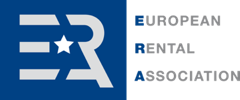A common framework for suppliers

The European Rental Association has launched a new Sustainable Supplier Framework to set the industry best practice guidelines and raise common practices for sustainability assessments across the rental industry.
The new Framework, which was developed by an independent consultant based on interviews with rental companies and suppliers, as well as on relevant international standards, will enable a harmonised and more effective approach to sustainable supplier assessments and be beneficial for both rental companies and their suppliers.
Michel Petitjean, Secretary General of the ERA, said, “This common approach will reduce the administrative burden of supplier assessments for rental companies and suppliers, raise standards across the industry and allow rental companies to consider suppliers against a common set of sustainability requirements.
“Furthermore, it will give rental company customers, such as contractors and public procurers, a clear idea of how the rental industry approaches supplier assessments and demonstrate that the industry is committed to responsible business practices and high standards of sustainability.”
The Framework provides a set of minimum requirements and aspirations for sustainability in the areas of:
- Human rights and working conditions
- Health and safety
- Responsible sourcing of components and raw materials
- Environmental performance
- Business ethics
- Product sustainability performance
An extended version of the Framework is available upon request from the ERA, giving rental companies a mechanism for assessing different levels of adherence to the Framework and opening the possibility for them to audit suppliers.
Maria Karlsson from Cramo said, “In 2018, through the ERA Sustainability Committee, Cramo raised the possibility of developing an industry approach to standardise and harmonise the task of supplier assessments for rental companies. As a company with a strong commitment to sustainability, we are delighted to see that this initial idea has become a reality. This Framework demonstrates that the rental industry is committed to sustainability and provides a more effective approach to supplier assessments that will benefit rental companies and their suppliers.”
What rental companies can do
Rental companies can adopt the Framework as a code of conduct and request their suppliers declare compliance with the requirements by completing and signing the supplier checklist. This checklist can be used as an integral part of the agreement between the supplier and the rental company.
Alternatively, rental companies are free to adapt the template according to their own requirements, although if adapted, suppliers would no longer be able to claim conformity to the ERA Sustainable Supplier Framework.
What suppliers can do
Suppliers will be able to send the signed declaration directly to rental companies and post adherence to the Framework on their websites. They can do this by publishing the signed declaration and displaying the ERA Sustainable Supplier Framework logo.
Any supplier to the rental companies can use this tool to self-assess against the harmonised requirements of the rental sector and to demonstrate fulfilment of these requirements.
Darren Fitch from Volvo CE said, “Sustainability is an important part of the success of Volvo CE. As a company that is committed to developing, producing and distributing products in a sustainable and responsible manner, we welcome this initiative by ERA. We hope that this Framework can both raise the standards of sustainability across the rental supply chain and benefit suppliers like us by defining common standards for supplier assessments.”
Are you using the Framework?
We encourage rental companies to inform the ERA if and how they use the Framework. The ERA would also welcome information from suppliers once they declare adherence to the framework on their websites.
For more information, visit the Sustainable Supplier Framework page to download the relevant documents or contact the ERA Secretariat: [email protected].
This article was first published in the International Rental News (September 2020).
